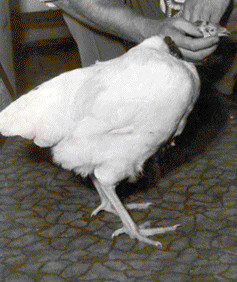"Hey! do you know the guy?”; “What guy?”; “Sousa de Sousa, Guimarães or Rocha?”. Undoubtedly, many people have already had the opportunity to develop a dialogue like these. However, don't you think that surnames have always been around, available in their function of distinguishing people who have the same name or revealing the family tree of individuals.
Until around the 12th century, Europeans used to give only one name to their descendants. At that time, perhaps because of the isolation of feudal society, people did not have the concern or need to coin another name or surname to distinguish an individual from the others. However, as societies grew, the possibility of meeting people with the same name could cause a lot of confusion.
Imagine! How could he transfer property to an heir without his descent being proven? How to send a message or merchandise to someone who had two hundred other namesakes in your neighborhood? Certainly, surnames came to solve these and other problems. However, we cannot find that a rule or criteria was widely publicized for people to adopt surnames.
In many cases, we see that a surname could originate through issues of a geographic nature. In this case, “João da Rocha” was named after the fact that he lived in a region full of boulders or lived close to a large rock. Insofar as the subject was called by others in this way, the surname ended up being used to distinguish his heirs through this naturally constructed situation.
Other scholars on the subject also believe that some surnames appeared because of the fame of a single subject. Surnames like “Severo”, “Franco” or “Slight” were created from the fame of someone who lived up to the quality related to these adjectives. Similarly, other surnames were coined because of the profession followed by the same family. “Bookman” (bookseller) and “Schumacher” (shoemaker) are surnames that illustrate this type of situation well.
When you didn't have a reputation for something or didn't stand out for some reason, your last name could be created very well simply by being someone's child. In Europe, this custom has become quite common and some surnames such as MacAlister (“son of Alister”), Johansson (“son of Johan”) or Petersen (“son of Peter”) can be seen. In the case of Portuguese, this same habit can be detected in surnames such as Rodrigues (“son of Rodrigo”) or Fernandes (“son of Fernando”).
Nowadays, some people are interested in going back to their family tree or knowing the origins of the family that gave them their surname. Perhaps, by looking at some characteristics of their surname, they can discover a little of the history behind it. After all, the important thing is to know that the absence of these “helpers” would make us one of the others.
By Rainer Sousa
Graduated in History
Brazil School Team
Do not stop now... There's more after the advertising ;)
Curiosities - Brazil School
Would you like to reference this text in a school or academic work? Look:
SOUSA, Rainer Gonçalves. "The origin of the surname"; Brazil School. Available in: https://brasilescola.uol.com.br/curiosidades/a-origem-sobrenome.htm. Accessed on June 27, 2021.



